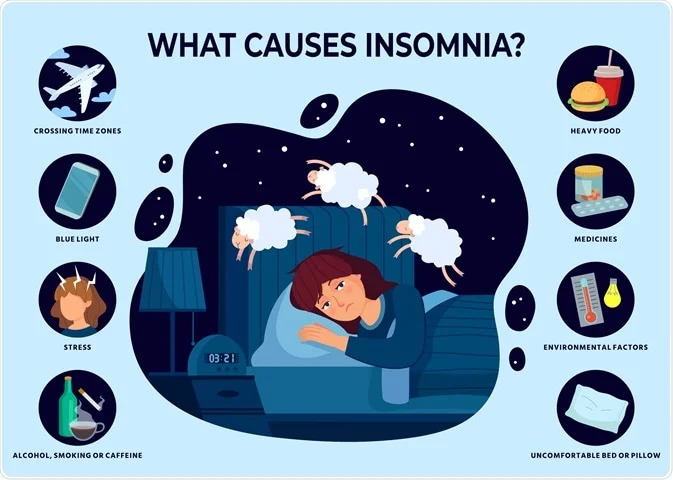Insomnia

What is Insomnia?
Insomnia is a common sleep disorder that can make it hard to fall asleep, hard to stay asleep or cause you to wake up too early and not be able to get back to sleep.
You may still feel tired when you wake up.
Insomnia can sap not only your energy level and mood but also your health, work performance, and quality of life.
Insomnia may be the primary problem, or it may be associated with other medical conditions or medications.
You don't have to put up with sleepless nights. Simple changes in your daily habits can often help.
Insomnia symptoms may include:
- Difficulty falling asleep at night
- Waking up during the night
- Waking up too early
- Not feeling well-rested after a night's sleep
- Daytime tiredness or sleepiness
- Irritability, depression, or anxiety
- Difficulty paying attention, focusing on tasks, or remembering
- Increased errors or accidents
- Ongoing worries about sleep
- Insomnia may be the primary problem, or it may be associated with other conditions.
- Chronic insomnia is usually a result of stress, life events, or habits that disrupt sleep. Treating the underlying cause can resolve insomnia, but sometimes it can last for years.
Insomnia may be the primary problem, or it may be associated with other conditions.
Chronic insomnia is usually a result of stress, life events, or habits that disrupt sleep. Treating the underlying cause can resolve insomnia, but sometimes it can last for years.
Insomnia becomes more common with age. As you get older, you may experience:
Changes in sleep patterns, changes in activity, Changes in health, more medications
Insomnia in children and teens
Sleep problems may be a concern for children and teenagers as well.
However, some children and teens simply have trouble getting to sleep or resist a regular bedtime because their internal clocks are more delayed.
They want to go to bed later and sleep later in the morning.
Complications of insomnia may include:
- Lower performance on the job or at school
- Slowed reaction time while driving and a higher risk of accidents
- Mental health disorders, such as depression, an anxiety disorder, or substance abuse
- Increased risk and severity of long-term diseases or conditions, such as high blood pressure and heart disease
